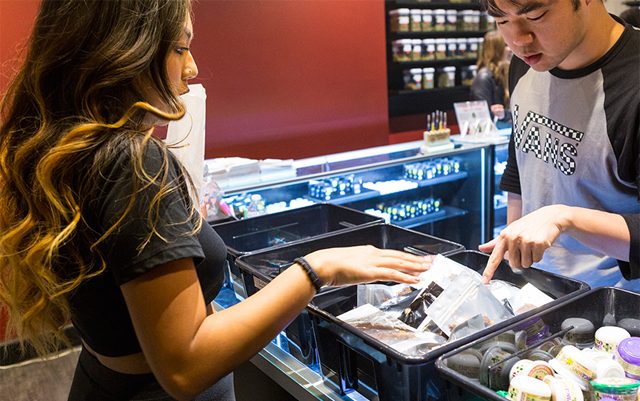The commonly used terms ‘indica’ and ‘sativa’ are outdated, inaccurate, and holding us back from the power of the plant, says one expert. Cannabis is complex and deserves a more accurate classification system to help adult users and patients find the best bud to meet their needs.
“These terms are holding us back and we have a responsibility to change,” says David Drake, CEO of Cannabis Reports. Cannabis Reports provides consumers, scientists, and companies with strain information that goes far beyond ‘indica’ and ‘sativa’.
‘Cannasseurs’ understand that plants develop chemical profiles based on specific, regional bio-reactive processes. That’s why learning about the origins of your seeds will quickly lead you to your best bud.
Want to start learning more about your medicine? Drake suggests having an elevated, more informed conversation with your budtender by asking questions such as:
- From which regions of the world are the genetics of the plant from?
- What feelings should I expect from a certain region?
- I want to feel (insert adjective), what geographic region will have cannabis strains that express that trait?
A plant expresses traits depending on where in the world that seed was bred. For example, regions at higher altitude mean more UV light — so the same cannabis seed planted in two different altitudes, will develop very different chemical profiles.
The difference in chemical profiles could mean the difference between bud that will make you feel ‘couch-locked’ or ‘creative’. Cannabis Reports is an open database of strain information, including:
- Seed company
- Seed origin
- Chemical profiles
You can see the shift from dual classification, to a more nuanced approach by online cannabis databases like Leafly and CannabiScope. Also, cannabis apps like Dōs VR are marketing cannabis with a heavy emphasis on seed company and how it makes you feel.
Furthering the Movement
Outdated and meaningless terms like ‘indica’ and ‘sativa’ are holding back the entire cannabis movement. We need to stay in-step with science, and as medical marijuana becomes the norm, doctors will use seed origins and chemical profiles in their research. It’s a more informed way of talking about the plant, which will further everyone’s understanding of how cannabis works.
Change begins with education — and policymakers have a lot of schooling ahead of them.
The misinformation has been institutionalized, going back to the actual language used to ban the plant. The Controlled Substances Act, under the Drug Enforcement Agency (DEA), defines marijuana as “Cannabis sativa L. (Title 21)”. By this narrow definition, indica is legal. However, experience tells us otherwise. Law enforcement doesn’t care if your marijuana is sativa or indica and neither should you.
Implications Beyond Cannabis
Drake says it’s easy to learn, like a newcomer to beer learns about pilsners, IPAs, and stouts. He believes we can make the switch and set an example for other industries. “If we prove it can be done, why not have more precise word banks for wine, lettuce, even pharmaceuticals,” said Drake.






